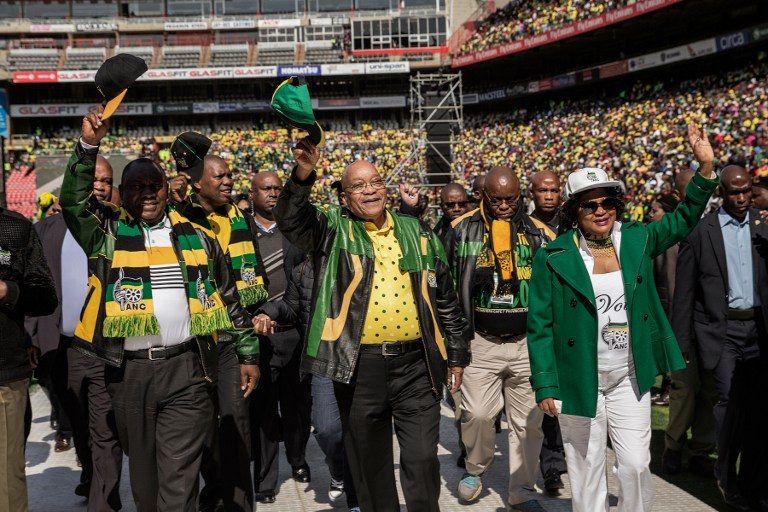SUMMARY
This is AI generated summarization, which may have errors. For context, always refer to the full article.

JOHANNESBURG, South Africa – South Africa’s government has descended into open warfare as a clash between President Jacob Zuma and his finance minister unveils rivalries that could tip the country into instability.
The ruling African National Congress (ANC) party looks set for worsening strife as its divided leadership struggles with falling popular support, a weakening economy and violent student protests.
Finance Minister Pravin Gordhan, a respected ANC veteran who was heading for a peaceful retirement until his appointment last year, has emerged as the unlikely figurehead of opposition to Zuma.
Gordhan, 67, will next month appear in court on criminal charges that he says are a politically-motivated attempt to oust him after he stood up to Zuma and alleged corrupt associates linked to the presidency.
Gordhan’s cause has attracted some significant backers – not least Deputy President Cyril Ramaphosa as well as several other ministers.
“People in the ANC are beginning to understand the gravity of the crisis that the country is in,” Prince Mashele, a political analyst based at the University of Pretoria, told Agence France-Presse.
“These are not just ordinary members, but senior members who have now broken ranks, including Ramaphosa – something which I would describe as groundbreaking.”
‘A very dark place’
Zuma in December reluctantly re-appointed Gordhan, who had served as finance minister from 2009 to 2014, to calm panicked markets after sacking two finance ministers within 4 days.
Gordhan vowed to use the unexpected opportunity to revive South Africa’s economy by controlling spending, reforming loss-making state companies and tackling rampant corruption.
His work put him in direct conflict with Zuma loyalists such as the Gupta business family, who are accused of wielding huge influence over the government.
In a carefully-worded statement on Sunday, October 16, Ramaphosa said: “I lend my support to Minister Gordhan as he faces charges brought against him.”
Adding to the toxic political mix, Zuma last week went to court to block the release of an official anti-corruption probe into his relationship with the Guptas.
Zuma has survived several major scandals during his presidency, but at a cost to the party that led the long fight against apartheid rule and took power under Nelson Mandela in 1994.
Local elections in August produced the ANC’s worst-ever poll performance, and a difficult general election looms in 2019.
“South Africa is in a very dark place,” said Mashele. “We have lost that moral high ground that we used to occupy.”
Zuma – who retains deep loyalty in many parts of the ANC – is due to leave office in 2019 after serving the maximum two terms, with Ramaphosa and Zuma’s former wife Nkosazana Dlamini-Zuma among his possible successors.
Worsening impasse
The president was reprimanded by South Africa’s highest court in March for using public funds to upgrade his private home, and he is also fighting a court order that could reinstate almost 800 corruption charges against him.
GDP growth is expected to be virtually zero this year, unemployment remains stubbornly high at 27%, and public anger at lack of progress since apartheid has most recently erupted through violent protests by university students.
“So much damage has been done in the process of keeping Zuma in power. Neither the ANC or South Africa are winners,” Susan Booysen, a political analyst at the University of the Witwatersrand, told Agence France-Presse.
“We haven’t previously seen this level of division in the ANC and cabinet during Zuma’s time in office. It’s very unusual for cabinet members to speak out.”
Zuma appears unable to sack Gordhan as it would trigger huge withdrawal of investment from South Africa, which already faces the possible loss of its investment-grade credit rating in December.
“Any move he will make against Gordhan now is likely to provoke a massive backlash,” Ranjeni Munusamy, a commentator and former aide to the president, wrote on Monday, October 17.
“(He) faces the real danger of being isolated as his comrades and subordinates close ranks around Gordhan.” – Rappler.com
Add a comment
How does this make you feel?
There are no comments yet. Add your comment to start the conversation.